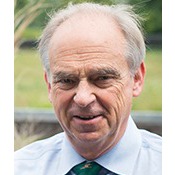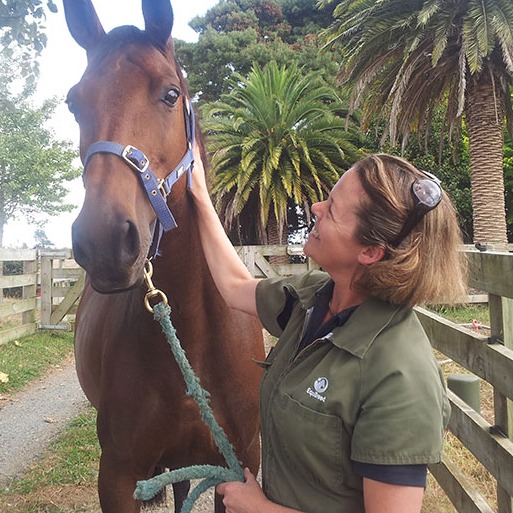Ethics of Equine Assisted Reproductive Techniques - From AI to Genetic Editing
Species
Equine
Contact Hours
3 Hours
Early Booking Deadline
Thu, 01 January, 1970
Registration Deadline
Thu, 01 January, 1970
Language
English
Discipline
Reproduction / Theriogenology
Industry Partners
Global

Veterinary Partners
Global


Recorded on: 3rd May 2022
Panelists:
Lee Morris BVSC, DVSC, DIPACT - EquiBreed NZ Ltd., New Zealand
Madeleine Campbell BVetMed, MA, PhD, DECAR, DECAWBM, MRCVS - The Royal Veterinary College, UK
Doug Antczak BVMD, PhD - Cornell University, USA
Moderator:
Mandi de Mestre DBVSc PhD MRCVS PGCAP FHEA - The Royal Veterinary College, UK
CONTENT DESCRIPTION
Artificial reproductive technologies (ARTs) continue to progress at a rapid rate with techniques such as artificial insemination and embryo transfer common place in equine practice and more advanced techniques such as ovum pick up, intracytoplasmic sperm injection, sex sorting of semen, embryo preservation as well as cloning available in many jurisdictions across the globe. We are now years not decades away from genetic editing being applied more widely to equine embryos. Beyond these established and evolving techniques, the future is likely to reveal new ARTs, currently only present in the corners of our imagination.
Whilst this rate of progress in scientific endeavours is celebrated and widely shared, we much more rarely pause to reflect on whether applying these routinely available techniques in equine practice are in the interest of the horses we manage or Society at Large. Just because we can, should we be performing all of these techniques? What frameworks and evidence do we have available to grapple with difficult ethical decisions? Who are the stakeholders in these discussions and who should get to decide? Should the law play a role in regulating application of ARTs in veterinary practice both in regards to techniques and who performs them? Are all ARTs the same in an ethico-legal context? How can or should you as a practitioner engage in ethical decision making? Is an international consensus on ethics of ART a reality or dream?
This international panel of world renowned experts in equine ARTs, veterinary ethics and equine genomics will each bring a unique perspective to the panel discussions. The workshop will tackle very practical and relevant questions to equine practitioners, touching on both the current status and future barriers to progress in the field.
.
Doug Antczak earned a Bachelor of Arts degree at Cornell, where he captained the university polo team. After completing a degree in veterinary medicine at the University of Pennsylvania, Dr. Antczak conducted post-graduate research in England as a Thouron Scholar, and he was awarded a Ph.D. in Immunology from Cambridge University in 1978. Since 1979 he has been on the scientific staff of the Baker Institute. In 1992 Dr. Antczk was appointed the Dorothy Havemeyer McConville Professor of Equine Medicine and, in 1994, Director of the Baker Institute for Animal Health, a post he held for 15 years until 2009. During his career Dr. Antczak has conducted research in equine immunology, genetics, and reproduction. Dr. Antczak’s most important contributions have been in placental biology, specifically in unraveling mechanisms that lead to maternal immune tolerance of the developing equine conceptus. Dr. Antczak has been a catalyst for cooperative research in equine medicine through a series of Dorothy Russell Havemeyer Foundation Workshops that he initiated over 40 years ago. Since 1995 Dr. Antczak has been a principal participant in the international Horse Genome Project collaboration.
Lee graduated from The University of Sydney in 1992 with a Bachelor of Veterinary Science. After 2 years in rural veterinary practice in northern NSW, Australia she undertook a 3-year residency programme in Theriogenology at the University of Guelph in Canada during which time she also became a Diplomate of the American College of Theriogenologists in 1997, and then graduated with a Doctorate of Veterinary Science in 1998. Her DVSc thesis work encompassed in vitro studies (IVF) on the production of embryos and the assessment of male fertility. From 1998 to 2001 Lee was employed as the Senior Veterinary Research Scientist at the Equine Fertility Unit in Newmarket (UK) where she worked with Professor Twink Allen and developed the hysteroscopic (low dose) insemination procedure for horses. In 2001 Lee was the Senior Registrar at The University of Sydney from where she provided clinical reproductive services for horses and dogs and conducted research into sex-sorted semen. Lee has been in New Zealand since 2002 and is now the Specialist Equine Reproduction veterinarian at EquiBreed NZ Ltd. In 2004, she became a Registered Specialist in Veterinary Reproduction in Australasia. Her special interests include artificial insemination (AI), embryo transfer (ET), epididymal spermatozoa, hysteroscopy, equine laparoscopy, semen freezing technology, sex-sorted semen and challenging cases of mare or stallion infertility. Lee provides referral consultancy services to equine vet clinics in New Zealand and Australia.
In 2004, Lee was elected onto the committee for the International Symposium of Equine Reproduction (ISER) and in 2014 she was the local Chairperson for the ISER XI in 2014 in Hamilton, NZ.
Lee has been an Honorary Associate of The University of Sydney (Australia) and an Honorary Lecturer at The University of Waikato (NZ) in recognition of her contribution to research. She has lectured and provided clinical tuition to veterinary students at The University of Guelph (Canada), Cambridge University (UK), Massey University and The University of Sydney (Australia). She has been the industry supervisor of 4 MSc theses (Waikato University, New Zealand) and 2 PhD theses (The University of Sydney, Australia). Lee has published more than 25 peer-reviewed scientific papers, presented her research internationally and written chapters in the Veterinary Clinics of North America and two textbooks on Equine Reproduction.
Madeleine was the first Veterinary Surgeon to be awarded a Wellcome Trust Fellowship in Biomedical Ethics, and used that funding to research the ethics of assisted reproductive techniques in non-human mammals.
PROFESSIONAL QUALIFICATIONS:
Qualified as a Veterinary Surgeon (BVetMed) with Honours in 1996 (The Royal Veterinary College).
PhD in Equine Reproduction, 2003 (London University). BA Oxford University (2:1) in Modern History and Economics, 1989.
Recognised as a Veterinary Specialist in Equine Reproduction by the European College of Animal Reproduction (2003) and The Royal College of Veterinary Surgeons (2006).
MA in Medical Ethics and Law from Keele University, 2012, Distinction for both course work and thesis.
Recognised as a European Specialist in Animal Welfare Science, Ethics and Law by the European College of Animal Welfare and Behavioural Medicine (2016)
Mandi graduated from the University of Sydney in 1998 with a First Class Bachelor of Veterinary Science. Her interest in research begun as a veterinary student during which time she spent two summers in the U.S.A in the laboratories of Professor Douglas Antczak (Cornell University) and Dr. Craig Altier (North Carolina State University) working on projects in the fields of equine genomics and reproduction. Following graduation, she worked as a veterinarian in equine specialist practice in Scone, Australia and Newmarket, United Kingdom furthering her interest in equine reproduction and neonatology.
In 2001, Mandi started a PhD in Biomedical Sciences at the John Curtin School of Medical Research (JCSMR Website), Australian National University, whilst continuing work part-time as an equine veterinarian. In 2005, she was the recipient of the 2006 Frank Fenner Medal and Dewar Milne Prize in Immunology awarded by the JCSMR for her PhD work. In 2005, Mandi returned to Cornell as a Post-doctoral research associate in the laboratory of Professor Douglas Antczak working on differentiation of placental trophoblast cells and regulation of immunity during pregnancy in the horse. Mandi joined the Royal Veterinary College as a Lecturer in the Department of Comparative Biomedical Sciences in 2007. Her current research interests combine her clinical training in reproduction and neonatology with her scientific background in the field of placental function and immunology. Her research is currently funded by HBLB, Thoroughbred Breeders Association, and Alborada Trust. In 2015 she was the recipeint of the Society of Reprouction and Fertility New Investigator Award for her research achievements. She currently is an Associate Editor for Frontiers in Reproduction and a member of the International Symposium of Equine Reproduction Committee (2016-2024) and on Council for the Society for Reproduction and Fertility (2018-present).
Veterinary Student
Online Panel Discussion
USD 35.00
Qualified Vet
Online Panel Discussion
USD 85.00
Intern/Resident (Requires proof of status)
Online Panel Discussion
USD 65.00
Vet Nurse/Vet Tech (Requires proof of status)
Online Panel Discussion
USD 65.00
If the options you are looking for are unavailable, please contact us.
No tax will be added unless you are a UK taxpayer
Choose currency at checkout


















